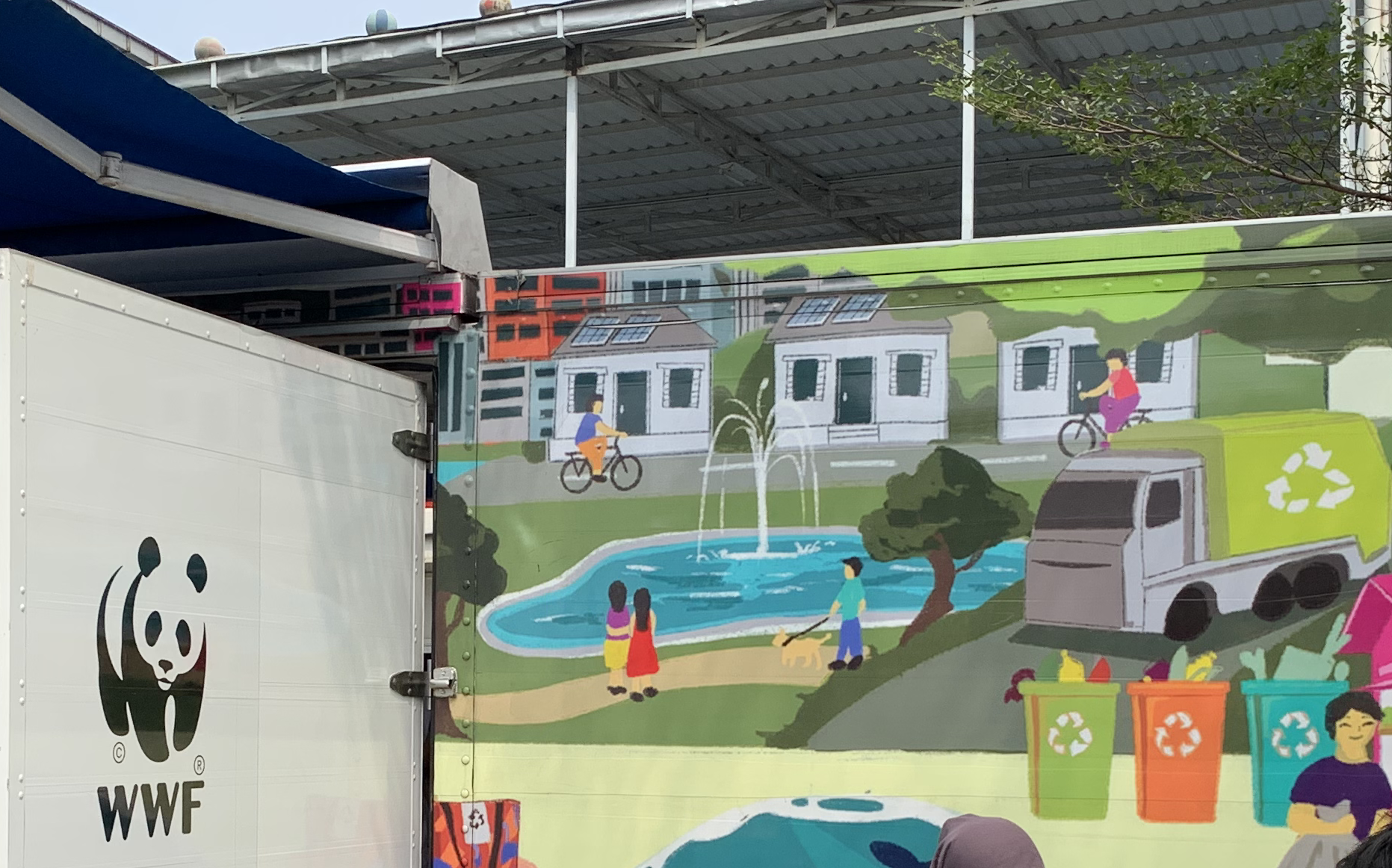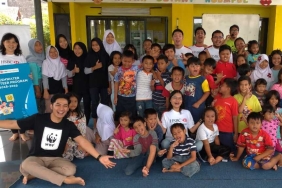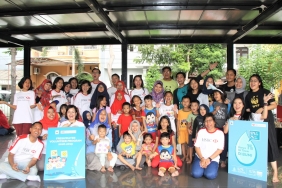WHEN NATURAL RESOURCES ARE NOT THE FIRST CHOICE
By: Nur Arinta (Panda Mobile Volunteer)
Every time I participate in Panda Mobile activities as a volunteer, I always learn something new. One of them was when I visited an international school in Bogor on Thursday (03/09). This is not the first time Panda Mobile has visited an international school. But this time I found something interesting.
One of the activities carried out during the visit was a game of "spaceship". Some students (4th, 5th and 6th grade) were divided into small groups. Then each group was given a cardboard paper and markers or crayons. They were all asked to imagine a situation where the earth had disappeared and all humanity had to survive in a spaceship. Their next task was to draw the spaceship and all the things they thought needed to be in the spaceship, so that humans could survive until they found a planet to live on. Once they have finished drawing the spaceship, each group presents their work to the others. Other groups are welcome to ask questions and or respond to the group that is explaining their work.
This is not the first time this game has been played in schools during Panda Mobile's visit. And usually we, the Panda Mobile team and the participants of this game have the same perception. I often find that there are forests, rivers, seas and other natural resources that the students list in their spaceships. The selection of renewable natural resources makes human survival sustainable. However, it turns out that this does not apply to the children who played with me in early September.
"Okay, guys! We're gonna make a spaceship. But first, I want you to make groups. Ten people for one group. I will give you this paper, one paper each group and markers. Please listen to my instruction! Just imagine that Earth has gone. There's no Earth anymore. And you, and all the humans in the world must live in a spaceship. You have to draw a spaceship and all the things that you would bring into the spaceship, to survive. After this you'll represent your work. Don't forget to explain why it is important to bring to the spaceship," that's the instruction I gave to the participants of this game.
Immediately they formed groups and were busy working on the assigned tasks. Each group also discussed with their group members about the spaceship they made. There happened to be one group that I accompanied from the beginning to the end of the discussion process. Guess what this group chose to bring in their spaceship? Is it the sea, forests, rivers and other natural resources? Not at all. Some of the things they chose to bring were their beauty rooms and private rooms. Then there are restaurants for their food, spas for their relaxation, movie theaters for their entertainment, and pet shops and pet salons to take care of their beloved pets.
I was surprised by their choices and asked, "How can you get the oxygen?" One of the children realized that they had forgotten how important oxygen is for survival, so he added an oxygen tank to his plane. Seeing that reaction, I asked "How about water?" They responded by adding a water tank to their drawing. Feeling annoyed, I asked them again "Don't you guys need the forest?" And my question about the forest was answered by the group leader. He replied "No... we don't need the forest. It will make our spaceship messy. "Oh my gosh, we forgot one important thing!" He immediately mentioned a famous coffee shop. "We really need it guys!"
Shocked at this, I told them to explain why they thought it was important to have all those things on board the spaceship, including the famous coffee shop. I wondered what made those things important to them. When it was their turn to present, they took turns telling their friends all about the contents of the spaceship. The group leader again emphasized the importance of the very popular coffee shop, "We need it to survive." After that, they closed their presentation. Simple. It was a simple explanation of how important the coffee shop was in their spaceship. To survive.
Looking at the work of the children who played spaceship in this international school, I can tell what kind of environment is around them. The difference in perception between me and these children about survival and the components needed for survival is really different. On this visit, the conservation value that should have been achieved can indeed be said to be far from the maximum due to time constraints.
However, this activity at least gave me and my team a lesson to equalize the perception at the beginning with the playing target to play this game. In addition, this activity shows the enormous challenges faced by me and the Panda Mobile team in carrying out environmental education in order to realize a life in harmony and harmony with nature.





